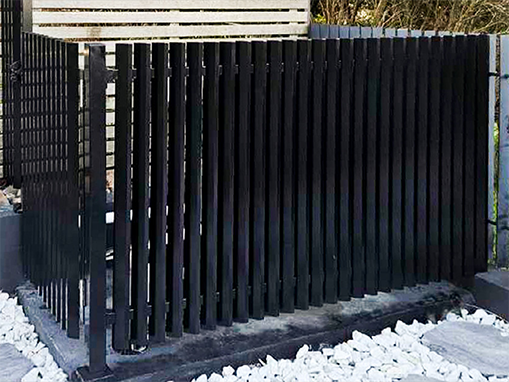Robin Hanbury-Tenison survived Covid at 84, now he’s saving Britain’s wildlife
Hanbury-Tenison and his younger son, Merlin, 35, a former Army officer, both passionate naturalists and self-confessed “beaver believers”, describe how the rodents, a “keystone species”, will create deep pools and fell trees, filtering and purifying the water and allowing sunlight in. This in turn will create many more niches where different species, from fungus and lichen to mayfly, bullhead trout and badger, can thrive in a complex eco-system, producing a more sustainable, healthier environment.
With a quarter of Britain’s mammals under threat, the family also aims to restore the water vole population, depleted by mink and, more controversially, to reintroduce critically endangered red squirrels in the long term, using pine martens to wipe out the greys.
A lifelong environmentalist, Hanbury-Tenison made his name in the late 1970s, leading the Royal Geographical Society’s largest expedition ever to the tropical Mulu rainforests of Sarawak in Borneo. The research undertaken here by more than 100 scientists helped to reveal the significance of rainforests as the “lungs of the world”.
Over the years, Hanbury-Tenison has planted thousands of oaks at Cabilla, and moved from intensive to extensive farming: he and Merlin are already beginning to replace the sheep and cattle currently grazing the uplands with ancient hardy breeds like Tamworth pigs, Highland cattle and ultimately bison.
Now, the wild valley’s remoteness is key to the next stage in its evolution. Both father and son are convinced that immersion in nature provides a vital antidote both to physical ailments, and to the current epidemic of mental illness and anxiety, triggered by the stresses of urban living.
At the height of Hanbury-Tenison’s seven-week coronavirus battle, the breakthrough came when he was wheeled out into Derriford’s unique ICU “Secret Garden” for half an hour each day.
“I had all these tubes in me and four people pushing this big bed,” he explains. “Then I felt the sun… and I suddenly looked up and said: ‘We’ve cracked it – I’m going to live!’”
Merlin, a former Army officer, faced his own health struggles after three traumatic tours of Afghanistan as a reconnaissance commander.
“Like many, I saw my fair share of action and in 2007 I was blown up in a roadside bomb blast,” he explained. “At first, it seemed to have no impact. Then, in 2017, I started suffering badly from PTSD and had a mini-breakdown: panic attacks, anxiety, bouts of depression. I had therapy but I found that spending time in the valley, quietly experiencing nature in these woods was just as important. It helped to calm me and restore my mental balance.
“It also gave us the idea of using our glorious surroundings to offer ‘forest-bathing’ retreats to veterans with PTSD, stressed urbanites, families or anyone who needs to escape from the hurly-burly of modern life. We’re converting nearby barns into a glamping hub, and with luck we should be up and running early next spring.” The stresses of modern living – and the limits it can push you to – is something Merlin has experienced first-hand. After leaving the Army, he worked “60 to 70-hour weeks” in a London management consultancy.








